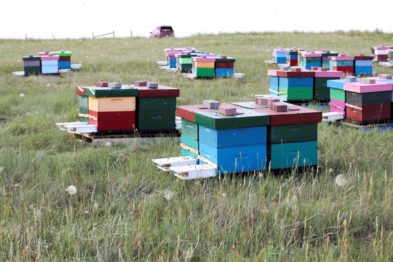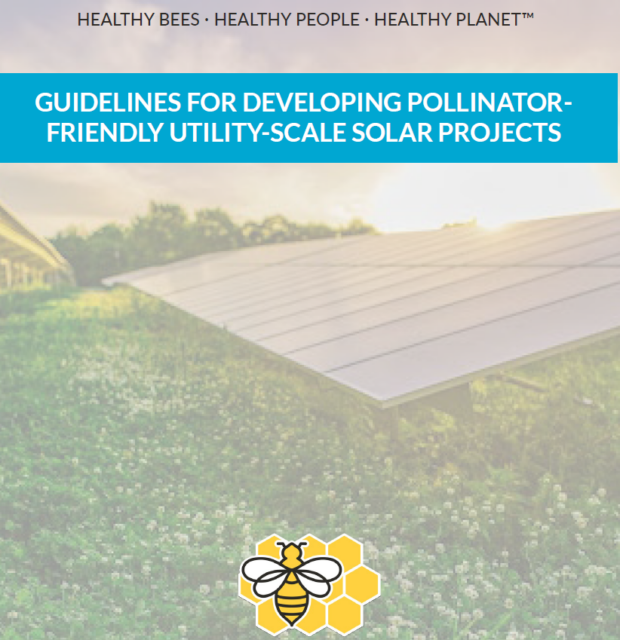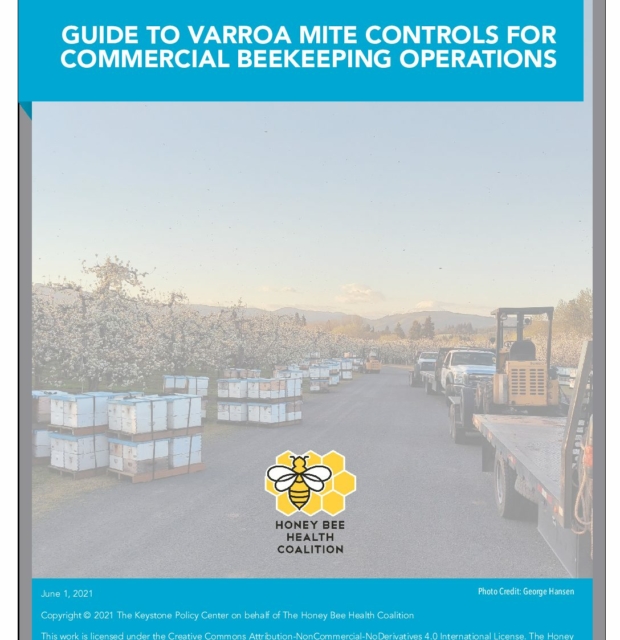News
Coalition Highlights Nutrition Report in American Bee Journal
In case you missed it, the Honey Bee Health Coalition highlighted its new nutrition report in the American Bee Journal‘s May 23 ABJ Extra:
Enhancing Honey Bee Nutrition Through Collaboration, Communication
Grabbing a meal on the go isn’t easy — and that’s true whether you’re a human or a bee.

Like us, honey bees face a wide variety of challenges every day. Finding nutritious, complete meals is increasingly becoming a problem for these industrious pollinators. The rapid and recent losses of pollinator habitat and forage across North America, driven in part by conversion to cropland and other land uses, has left hives in need of assistance from beekeepers.
Given this trend and beekeepers needs, the Honey Bee Health Coalition engaged in outreach to beekeepers in late 2016 and early 2017 to discuss the nutrition challenges their hives face and the use of nutrition supplements. These supplements, whether commercially produced or brewed by beekeepers themselves, help bees produce additional brood and obtain nourishment when natural pollen is lacking.
This outreach, which centered around extensive interviews with commercial beekeepers, resulted in a new report out this week, “Beekeeper Insights on Honey Bee Nutrition Supplements.” (honeybeehealthcoalition.org/NutritionReport)
The report, compiled by Keystone Policy Center — a nationally recognized nonprofit working to find collaborative, actionable solutions to public policy challenges — summarizes the challenges bees face on the forage and nutrition front; explores why, when, and how beekeepers use nutrition supplements; and charts a path forward to enhance the research and resources available to beekeepers.
Specifically, beekeepers said more research is needed, including:
- Understanding the components of natural pollen to aid the development of supplements that act as a “complete” diet for bees.
- Identifying critical elements of specific supplemental diets that address geographic, seasonal, and life-cycle objectives, such as queen rearing, and helping beekeepers confront critical challenges.
- Determining nutritional factors for strengthening the bee immune system and preventing disease.
- Comparing the nutritional and economic costs and benefits of proactive and reactive feeding strategies.
- Conducting comparative field studies of the efficacy of different commercial supplement products and feeding strategies.
The research priorities identified by beekeepers have not been compared against existing research, so there might be a gap between the bee nutrition research being conducted and the information reaching beekeepers. Beekeepers said they need better communication channels with both researchers and supplement manufacturers. This simple step would foster stronger collaboration and ensure products on the market reflect beekeepers’ needs.
Based on these conversations, the Coalition recommends additional informational resources that could improve nutrition strategies and decisions around hive health; for example: 1) a transparent and unbiased guide to available supplements and relevant research surrounding bee dietary needs, supplement ingredients, feeding strategies, and supplement effectiveness, and 2) a catalogue of natural pollen types that includes information on regional forage species and their known nutritional attributes.
As the Honey Bee Health Coalition looks to its next steps from the report, it will explore strategies to help drive these kinds of solutions in research and informational resources. For example, the Coalition plans to announce later this year a related prize competition.
Although a lack forage and nutrition is not the only challenge bees face, it is essential to honey bee health and beekeepers’ efforts to support their colonies.
The insights and perspectives shared by U.S. and Canadian beekeepers should help drive action to ensure that honey bees can more easily enjoy a high-quality meal all the while as they support the pollination and production of the foods we humans need.
Shapiro is the facilitator of the Honey Bee Health Coalition and a senior policy director at the Keystone Policy Center, a nationally recognized nonprofit working to find collaborative, actionable solutions to public policy challenges. Keystone operates under a statement of independence to serve all of its project participants.

